Dissecting Panda: A Google Penalty Explained – Part 3 of 5
Contents
- 1 Does the article describe both sides of a story?
- 2 Is the site a recognized authority on its topic?
- 3 Is the content mass-produced by or outsourced to a large number of creators, or spread across a large network of sites, so that individual pages or sites don’t get as much attention or care?
- 4 Was the article edited well, or does it appear sloppy or hastily produced?
- 5 For a health related query, would you trust information from this site?
- 6 Would you recognize this site as an authoritative source when mentioned by name?
Here we continue with question 10 that Google wants webmasters to ask of themselves, to discover whether they are complying with Google’s Panda algorithm. This is page 3, the previous pages discussed trust, author rank, Google’s diversity filter, grammatical and spelling issues, user participation, social signals and more.
Does the article describe both sides of a story?
I’m going to call this an affiliate review factor, where the reviews are always positive and you’re selling that product. There is much speculation in the SEO community that Google doesn’t like affiliate sites.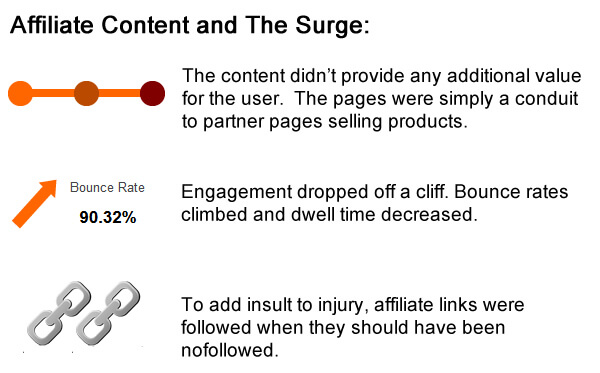
How can Google know you’re an affiliate site? That’s pretty easy. I simply needs to check whether you have outgoing affiliate links. How would Google know whether you’re giving “both sides of the story”? Perhaps it is looking for clues that you have claimed that you are an affiliate and you make money if the product is purchased — that you are making an affiliate disclosure.
It’s not hard to imagine how Google could verify this, by looking for the words affiliate and disclosure? Perhaps they target various niches where they would expect a disclosure statement to be made. If they don’t see one, it’s simply another negative ranking factor — that (when coupled with many others) would eventually result in your pages being filtered.
This question again addresses the topic of author rank. By creating social accounts at Facebook, Twitter, Google+ and more, Google can begin to discover whether you are an authority on a particular topic.
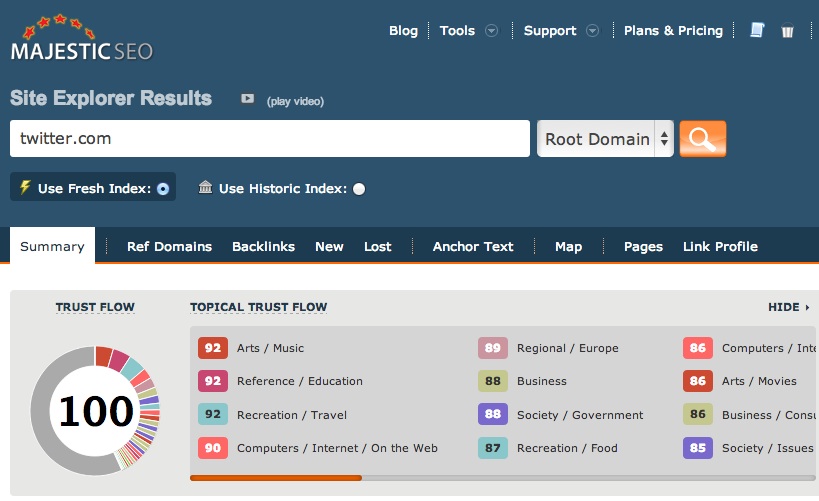 Another issue that is addressed here is relevancy. Majestic has created a “topical trust” statistic that measures trust flow of various sites as categorized within various niches. For instance, a site may have a high amount of trust when it comes to computers and tech, but not much when it comes to health and fitness. Google likely has a far more advanced algorithm that determines the topicality of a site and assigns it trust according to its specific niche.
Another issue that is addressed here is relevancy. Majestic has created a “topical trust” statistic that measures trust flow of various sites as categorized within various niches. For instance, a site may have a high amount of trust when it comes to computers and tech, but not much when it comes to health and fitness. Google likely has a far more advanced algorithm that determines the topicality of a site and assigns it trust according to its specific niche.
Is the content mass-produced by or outsourced to a large number of creators, or spread across a large network of sites, so that individual pages or sites don’t get as much attention or care?
 It’s hard to see the “mass-produced” part as being anything other than a content farm. Google has given the axe to sites that produce a large amount of articles — where each article is thin. This is the reason sites such as Hubpages and Ezine articles lost their traffic.
It’s hard to see the “mass-produced” part as being anything other than a content farm. Google has given the axe to sites that produce a large amount of articles — where each article is thin. This is the reason sites such as Hubpages and Ezine articles lost their traffic.
Google obviously doesn’t want a bunch of sub-standard redundant articles from content farms to rank. They can determine by algorithm, with their diversity filter, all of the content that is redundant and remove it from their search. “Mass-produced” content is indicative of low quality content.
How can you make Panda happy regarding your content? Articles should be maintained to remain relevant, as they age. Google loves slowly improving content. By continually adding to and improving your articles, you help keep the Panda away from your rankings. In addition, your content must be not only unique, but it must make new points not found on any other page, or arrange those points in a new way. Rewritten or spun articles will not help you to rank, and getting links from rewritten or spun articles will not count long-term as a stable backlink. This again goes back to Google’s diversity filter.
Was the article edited well, or does it appear sloppy or hastily produced?
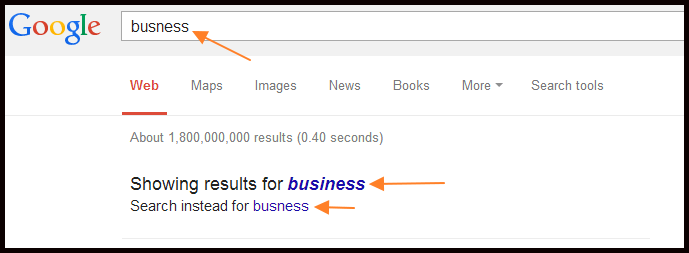 This is a reference to your on-page SEO. Being “edited well” would be in reference to spelling and grammatical correctness, and “sloppy or hastily produced” would refer to spelling and grammatical errors. This is pretty much self-explanatory — obviously Google can detect whether your words are misspelled or your grammar is incorrect.
This is a reference to your on-page SEO. Being “edited well” would be in reference to spelling and grammatical correctness, and “sloppy or hastily produced” would refer to spelling and grammatical errors. This is pretty much self-explanatory — obviously Google can detect whether your words are misspelled or your grammar is incorrect.
Google has a higher, more stringent set of criteria and trust they require for health related queries. If your site is not affiliated with a hospital, or a national non-profit organization or other similar credential — and if you’re not a doctor, don’t expect to rank well for “cancer treatments”, even if you have a stronger link portfolio.
This is about being a brand. Google considers the mere “mention by name” of a brand as a virtual link. Any article on the internet that casually mentions a brand, is actually linking to that brand. The patent is here. You’ll notice that the inventor is Navneet Panda. If people recognize your name, you are a brand. If you are a brand, the mere mention of your name is a link. This is why you’ll rank better being a brand, and why you won’t rank as well if people don’t recognize your site by name.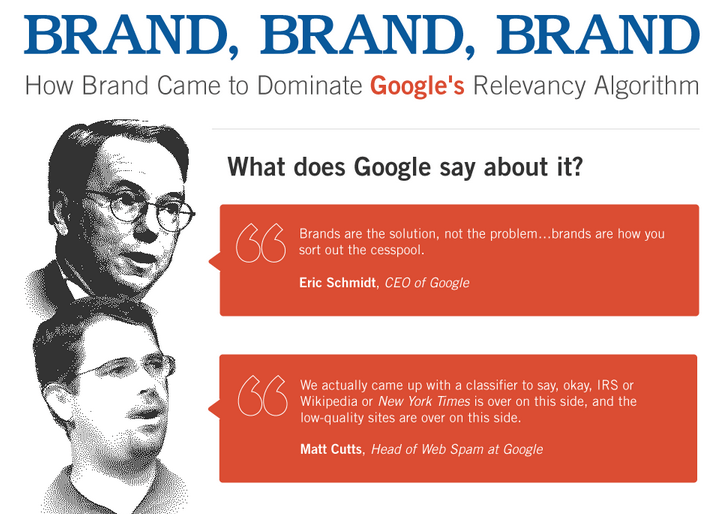
If brands are favored by Google, how do you become a brand? The first would be to establish yourself as such. A short, memorable, unique name is a good start. Consider “Moz”. Notice, I just linked to them — because I mentioned their brand name, and a brand name mention is a virtual link! Moz is very short, and as such would easier to brand. One part of the branding process is a group of people who actually search for your band. I find myself doing this all the time — for instance, today I searched for “Moz ranking factors”, and if there’s any particular SEO subject where I want to know Rand’s opinion, I’ll add “Moz” to the query.
Links to your site should be heavily branded. If I’m building links to a site, and the anchor text is under my control, I typically will use the brand by itself, or brand with a keyword, but usually brand with extra non-keyword terms that are related, but not exactly what I want to rank for.
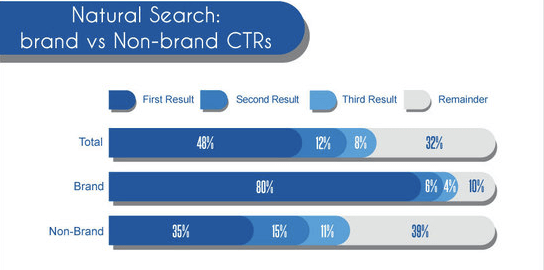 As I mentioned above, having people search for your brand in Google will get your brand name recognized as such. You can encourage people to search for your brand by making it short, easily spelled and then provide excellent content that people would want to return to.
As I mentioned above, having people search for your brand in Google will get your brand name recognized as such. You can encourage people to search for your brand by making it short, easily spelled and then provide excellent content that people would want to return to.
This is one of the reasons why EMD (exact match keyword domains) don’t do as well any longer. It’s enormously difficult to be a brand when you’re a keyword site. Your brand can never be “cheapusedcars.com”, even if you have the EMD. The reason is that people, when they search with that term, have no intent to find your site. The just want to buy a cheap used car. Only when someone is actually looking for your site, will you acquire that term as a brand in Google’s view.
You’re on page 3 of our 5 part guide to understanding Google’s Panda algorithm. Continue to the next page where we continue with the 11th question Google asks webmasters, so they can self-assess whether they would have difficulties with Panda.

Comments